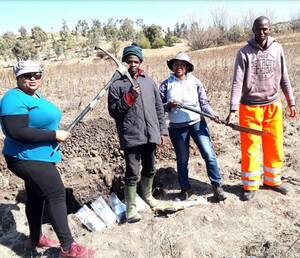Lesotho Soils Information System (LESIS)

Project Symbol: TCP/LES/3602
Technical support for the establishment of the Lesotho Soils Information System (LESIS)
Lesotho is a landlocked country completely surrounded by the Republic of South Africa More than 76 percent of the country’s population lives in rural areas, where the main source of income is subsistence rain fed agriculture Land use patterns in Lesotho have been mainly determined by historical circumstances and agro ecological conditions In the past, hilltops and mountain sides were used as fortresses and many settlements were confined to these strategic locations, while flat plains and fertile valleys were used for crop farming and remote mountains for grazing This has largely remained the pattern of land use in the country although population pressure and urbanization have forced widespread encroachment of settlements in areas traditionally reserved for agriculture The shortage of arable agricultural land has also tended to concentrate cultivation on mountain slopes, with devastating results for slope and soil stability, a decrease in the quality of rangelands and reduced agricultural productivity The country’s soils are thus under severe pressure as a result of natural conditions and human activities, triggering soil erosion, land degradation and depletion of soil organic matter Soil data in Lesotho are limited and the lack of systematic and organized soil information impedes the management and monitoring of soil properties.
BACKGROUND INFORMATION
Strategic Objective (SO)/Organizational outcome: SO2 -Increase and improve provision of goods and services from agriculture, forestry and fisheries in a sustainable manner;
Outcome 2.4.3.: Capacity development support is provided to institutions at national and regional levels to plan for and conduct data collection, analysis, application and dissemination
CPF Outcome 3: By 2017, natural resources are sustainably managed by local authorities and community groups
Actual EOD: 1August 2016
Actual NTE: 31July 2018
Total Budget: USD 475,000
